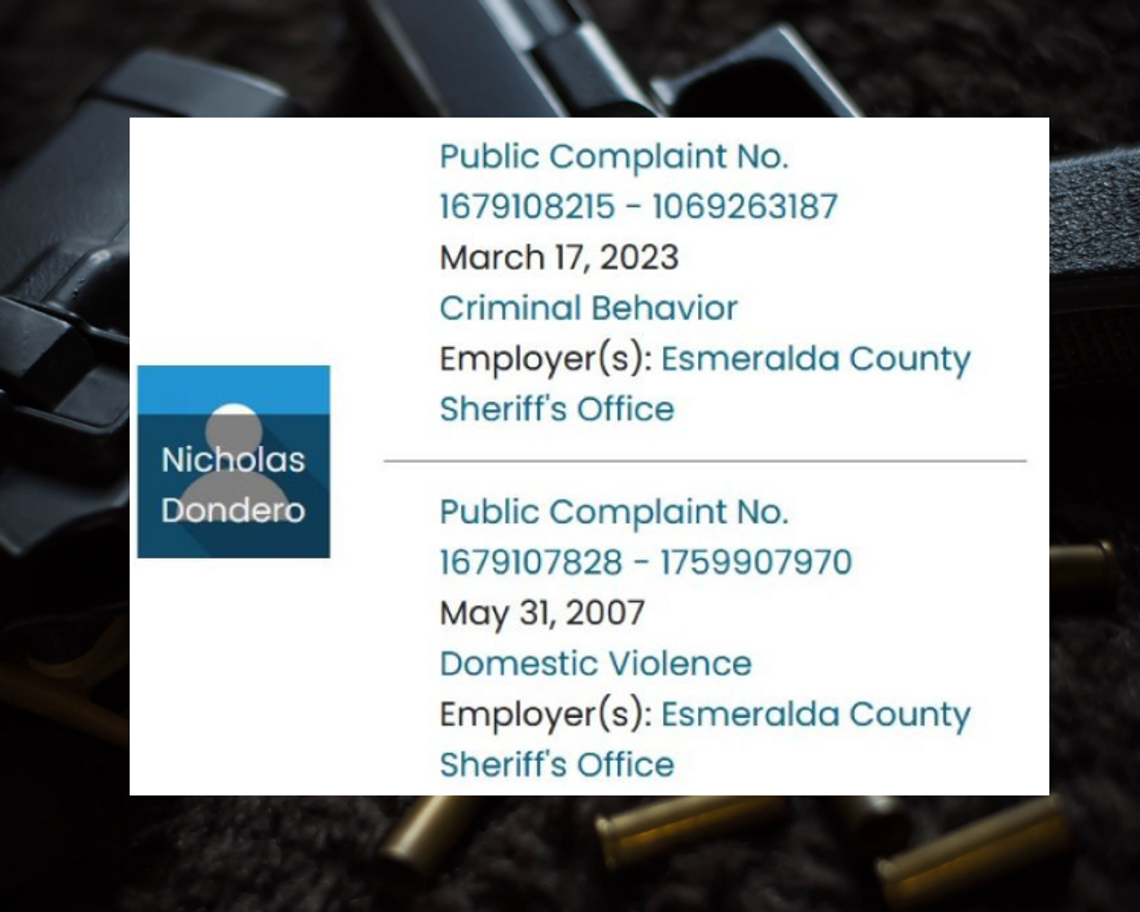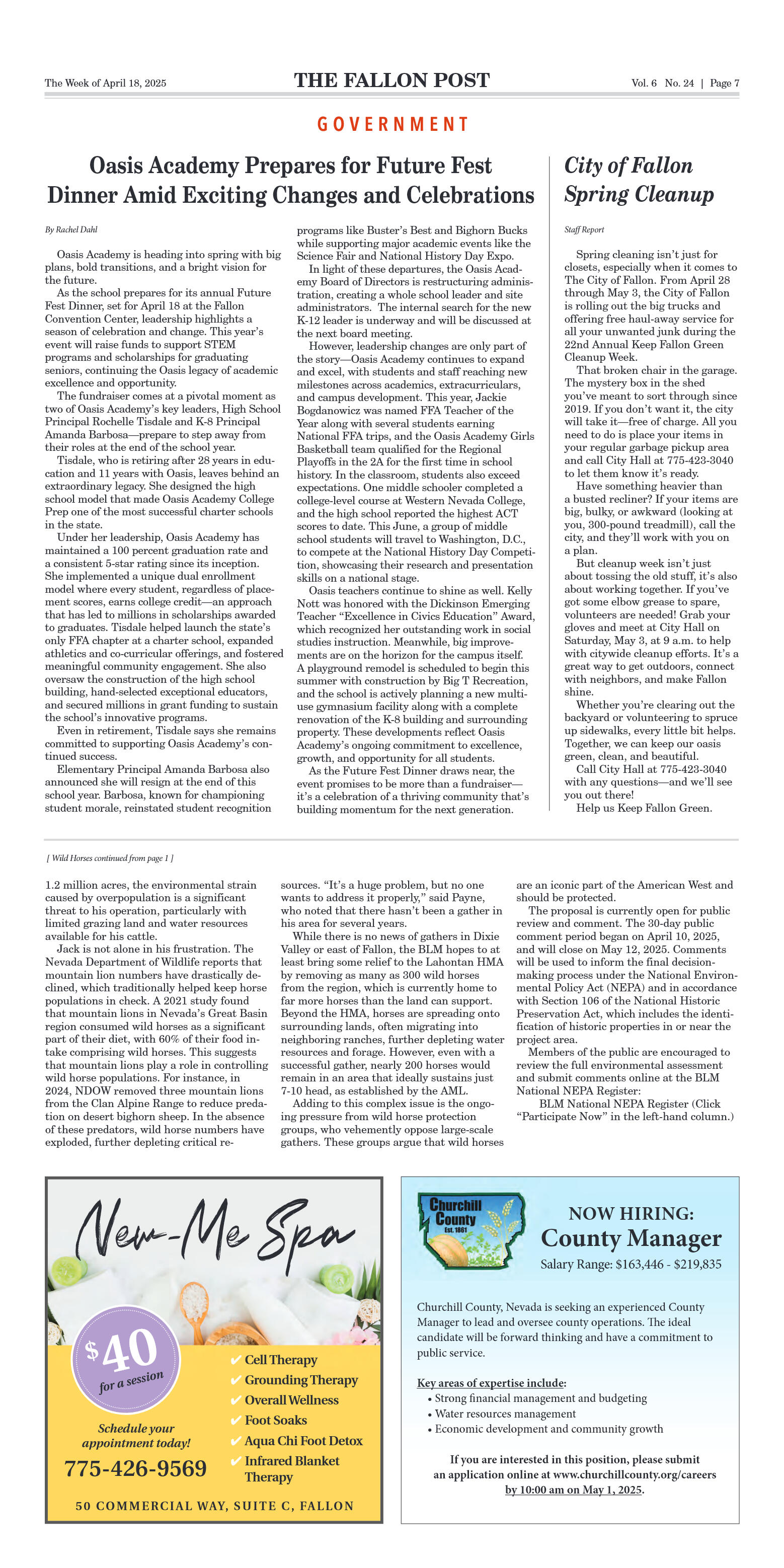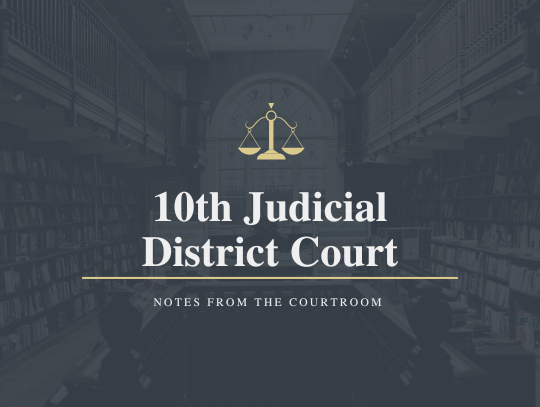Esmeralda County Sheriff, Nick Dondero, assumed office last January and is the subject of an ongoing Fallon Post investigation. Due to a sealed 2007 misdemeanor domestic battery conviction, the former City of Fallon Police Officer is ineligible to serve as a sheriff in Nevada and cannot legally possess a firearm. And yet, he remains in office.
This article examines the serious issues of public trust, liability, and the crucial matter of accountability in law enforcement. Specifically, we look at the little-known but integral facet of law enforcement integrity: the Brady List. It is a list that no peace officer aspires to join, and one Sheriff Nick Dondero occupies.
What is the Brady List and why does it matter?
The purpose of the Brady List is to serve as a mechanism to track and identify officers whose credibility may come under scrutiny. Named after the landmark 1963 Supreme Court case, Brady v. Maryland, the Brady List is a practical implementation of the Brady Ruling which mandates the prosecution in a criminal case must provide the defense with any exculpatory or material information.
This includes witnesses, evidence, and statements made by law enforcement officers involved in the case, any of which could affect the prosecution’s credibility.
Officers may find themselves on this list for a variety of reasons, including falsifying or tampering with evidence, perjury, excessive force, or engaging in misconduct. Justice of the Peace and former Churchill County Sheriff Ben Trotter explained, “When an officer is on the Brady List, it is usually an issue of honesty and trustworthiness.”
Off-duty actions or incidents can also earn officers a place on the list. In each instance the substantiation of an officer's conduct results from an investigation, internal affairs examination, court ruling, or official records. In Dondero’s case, he is listed for his domestic battery conviction and criminal conduct by illegally possessing a firearm as a prohibited person.
“In law enforcement, your integrity and your word are everything,” said Churchill County Sheriff Richard Hickox, referring to the importance of the Brady List. “As a law enforcement officer, if you have lied or have something in your past that could impeach your testimony, you are not credible on the witness stand. That would have to be revealed to the prosecution.”
Because Dondero is on the Brady List, he poses a serious liability to the integrity of Esmeralda County’s criminal justice system. Should he be called to testify or present evidence in a case as sheriff, his credibility would inevitably be called into question. The implications of this could be dire, especially in cases of murder, assault, and domestic violence.
Securing a conviction in such a case is challenging under the best of circumstances. No prosecutor wants to inadvertently enable a guilty defendant to evade justice due to compromised testimony from local law enforcement officers.
Who will be left holding the bag?
As the highest-ranking law enforcement officer in Esmeralda County, Dondero is responsible for the safety and security of its residents. His inability to legally possess a firearm or meet certification requirements set forth by NRS, undermines his ability to fulfill his duty as sheriff, thereby exposing the county to considerable liability and insurance challenges.
County insurance coverage generally includes provisions for the actions of officers. However, Dondero places the county in a potentially untenable position as liability insurance providers often have specific requirements regarding officer qualifications and certifications. Failure to meet these requirements could result in coverage being denied or limited.
If Dondero’s actions ever resulted in harm, damages, or death, legal claims would likely arise. Should something tragic happen while he is performing his duties, the county may be liable. An officer-involved shooting by an uncertified peace officer who cannot legally possess a firearm could cost Esmeralda County millions in damages. A bill that few counties can afford to pay.
Law enforcement and public trust
When an individual on the Brady List assumes the role of a county’s top-ranking law enforcement officer and continues to hold the position, it sends a message to both the community and law enforcement: dishonesty and misconduct may be overlooked.
The message in Esmeralda County is loud and clear, and continues to undermine the public trust, diminishing the reputation of other law enforcement agencies and officers. Integrity serves as a cornerstone for law enforcement. Without it, the foundation of the enforcement branch of the government begins to crumble.
“People have a lot of trust in us,” explained Sheriff Hickox. “We have a lot of power. We have the ability to take people’s freedom away from them. And we have the ability to, by law, if someone is doing certain things, to take their life. These are huge responsibilities – they are weighty, and they have to be taken as such.”
Hickox firmly believes law enforcement functions by the goodwill of the people. “We have a lot of trust here (in Churchill County) because we are transparent, and we must work really hard to maintain that trust.”
Echoing this sentiment, Fallon Police Chief Ron Wenger asserts, “The most important part of being a law enforcement officer is trust, honesty, and ethics. Without that, you have no credibility. In this department we hire for character and teach you how to be a police officer.”
Note: The Fallon Post received a letter from the Esmeralda County Sheriff, Nick Dondero, in answer to our request for a copy of his CCW, stating that CCW permits are not public record in Nevada. He has not responded to any of our other requests for comment or an interview. We have reached out again to the Attorney General for a statement requesting confirmation of that assertion.










































Comment
Comments